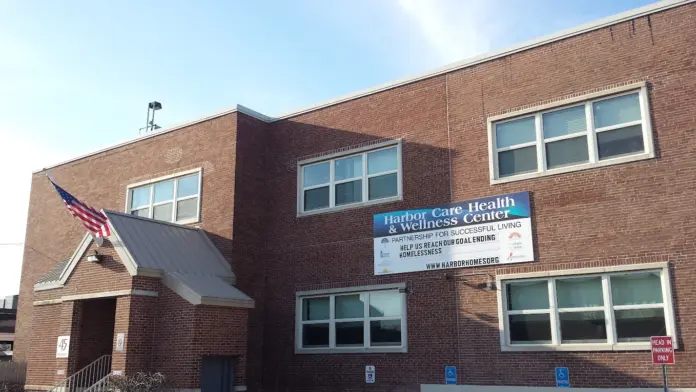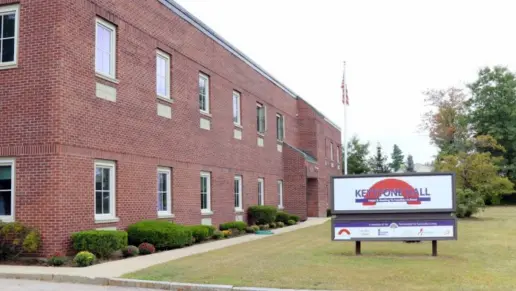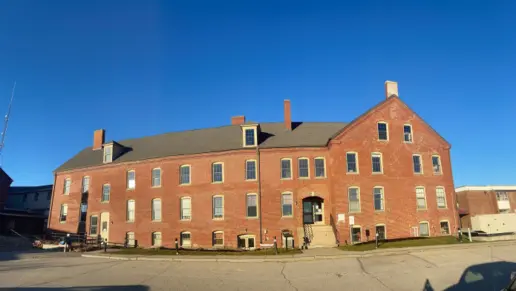About Harbor Care Health and Wellness Center
Harbor Care is a mental health support and drug and alcohol addiction recovery based in Nashua, New Hampshire. Harbor Care helps individuals and their families achieve stability following crises and times of personal difficulty through comprehensive, person centered care. They are a nonprofit facility with clinical amenities. Harbor Care is a network of service providers catering to the needs of New Hampshire residents. In addition to mental health and addiction care, they have housing, veteran, and HIV/AIDS programs available.
Residential treatment is a high level of care designed for clients with severe symptoms considered high risk. During inpatient care, they reside on campus under a set of restrictions to limit the risk of relapse and keep them safe. Clients are under staff monitoring throughout their stay.
Clients work with a care team to develop their treatment based on need. Treatment uses evidence backed therapies and holistic methods alongside education opportunities to help clients better understand the nature of addiction and their triggers while developing coping skills that support continued recovery.
Clients who complete inpatient care can transition into the outpatient program, or it can be entered into directly by clients with less intrusive symptoms. During outpatient programming, clients live at home and visit the campus for treatment sessions on a regular, relaxed schedule. The same therapies used in the residential program are used in outpatient care.
The medical team at Harbor Care may prescribe clients medication to help them overcome addiction or mental health symptoms that prevent them from focusing on treatment and recovery. Traditionally, MAT is used in treating opioid use disorder but can be applied in other cases if an assessment suggests it would help a client. Those receiving MAT are closely observed for adverse effects and to track their health.
Latest Reviews
Rehab Score
Gallery

Location
Other Forms of Payment
Medicaid is a state based program that helps lower-income individuals and families pay for healthcare. Medicaid covers addiction treatment so those enrolled can use their coverage to pay for rehab. When a program accepts Medicaid the client often pays very little or nothing out of their own pocket.
Medicare is a federal program that provides health insurance for those 65 and older. It also serves people under 65 with chronic and disabling health challenges. To use Medicare for addiction treatment you need to find a program that accepts Medicare and is in network with your plan. Out of pocket costs and preauthorization requirements vary, so always check with your provider.
Private insurance refers to any kind of healthcare coverage that isn't from the state or federal government. This includes individual and family plans offered by an employer or purchased from the Insurance Marketplace. Every plan will have different requirements and out of pocket costs so be sure to get the full details before you start treatment.
Self-pay involves paying for treatment out of your own pocket. You can use savings or credit, get a personal loan, or receive help from family and friends to fund your treatment. If you don't have insurance or your insurance plan doesn't cover a specific program, self-pay can help ensure you still get the care you need.
Sliding scale payments are based on a client's income and family size. The goal is to make treatment affordable to everyone. By taking these factors into account, addiction recovery care providers help ensure that your treatment does not become a financial burden to you or your family, eliminating one barrier to care.
Addiction Treatments
Levels of Care
Treatments
Mental health rehabs focus on helping individuals recover from mental illnesses like bipolar disorder, clinical depression, anxiety disorders, schizophrenia, and more. Mental health professionals at these facilities are trained to understand and treat mental health issues, both in individual and group settings.
Opioid rehabs specialize in supporting those recovering from opioid addiction. They treat those suffering from addiction to illegal opioids like heroin, as well as prescription drugs like oxycodone. These centers typically combine both physical as well as mental and emotional support to help stop addiction. Physical support often includes medical detox and subsequent medical support (including medication), and mental support includes in-depth therapy to address the underlying causes of addiction.
Substance rehabs focus on helping individuals recover from substance abuse, including alcohol and drug addiction (both illegal and prescription drugs). They often include the opportunity to engage in both individual as well as group therapy.
Programs

Clinical Services
Research clearly demonstrates that recovery is far more successful and sustainable when loved ones like family members participate in rehab and substance abuse treatment. Genetic factors may be at play when it comes to drug and alcohol addiction, as well as mental health issues. Family dynamics often play a critical role in addiction triggers, and if properly educated, family members can be a strong source of support when it comes to rehabilitation.
Group therapy is any therapeutic work that happens in a group (not one-on-one). There are a number of different group therapy modalities, including support groups, experiential therapy, psycho-education, and more. Group therapy involves treatment as well as processing interaction between group members.
In individual therapy, a patient meets one-on-one with a trained psychologist or counselor. Therapy is a pivotal part of effective substance abuse treatment, as it often covers root causes of addiction, including challenges faced by the patient in their social, family, and work/school life.
Accreditations

LegitScript has reviewed Harbor Care Health and Wellness Center as part of their certification program, and has determined that it meets the LegitScript standards for legality, safety and transparency.
LegitScript verified in
Contact Information
45 High St
Nashua, NH 01173



